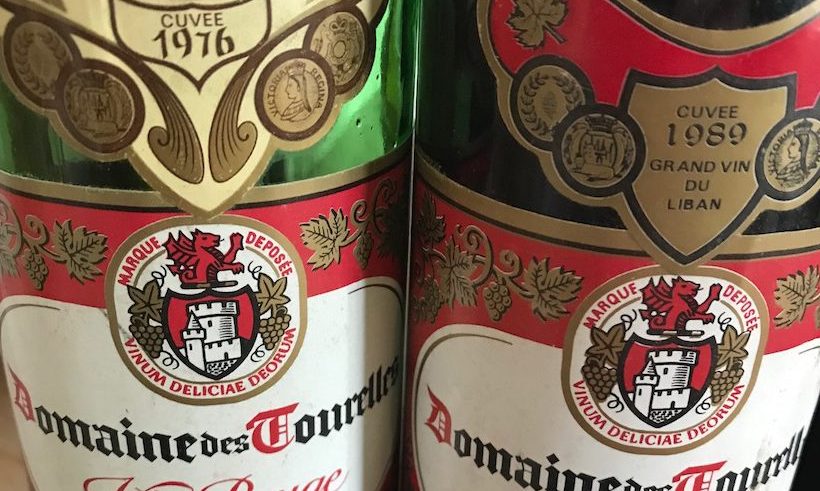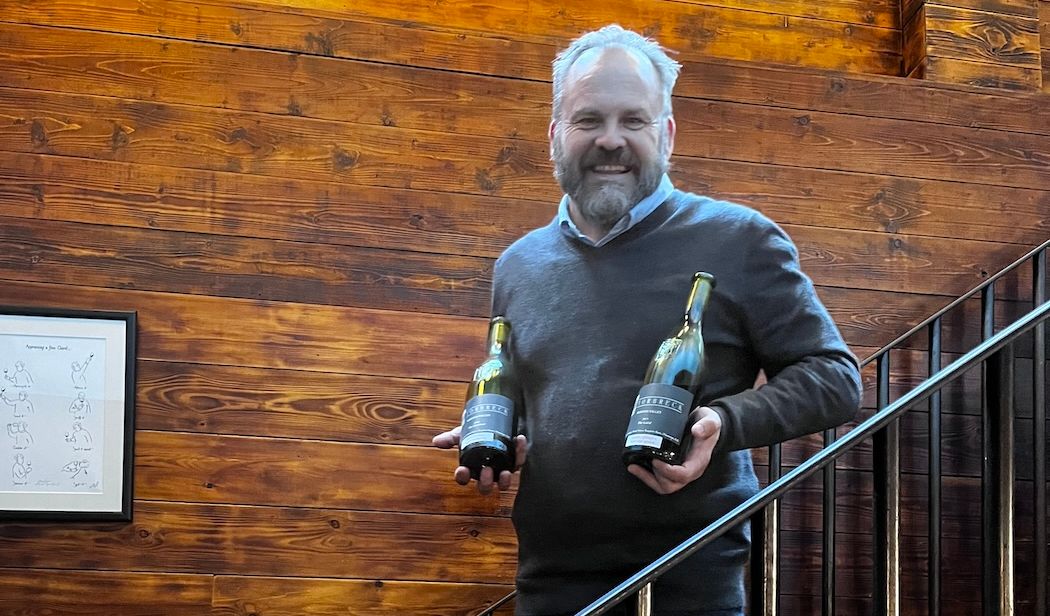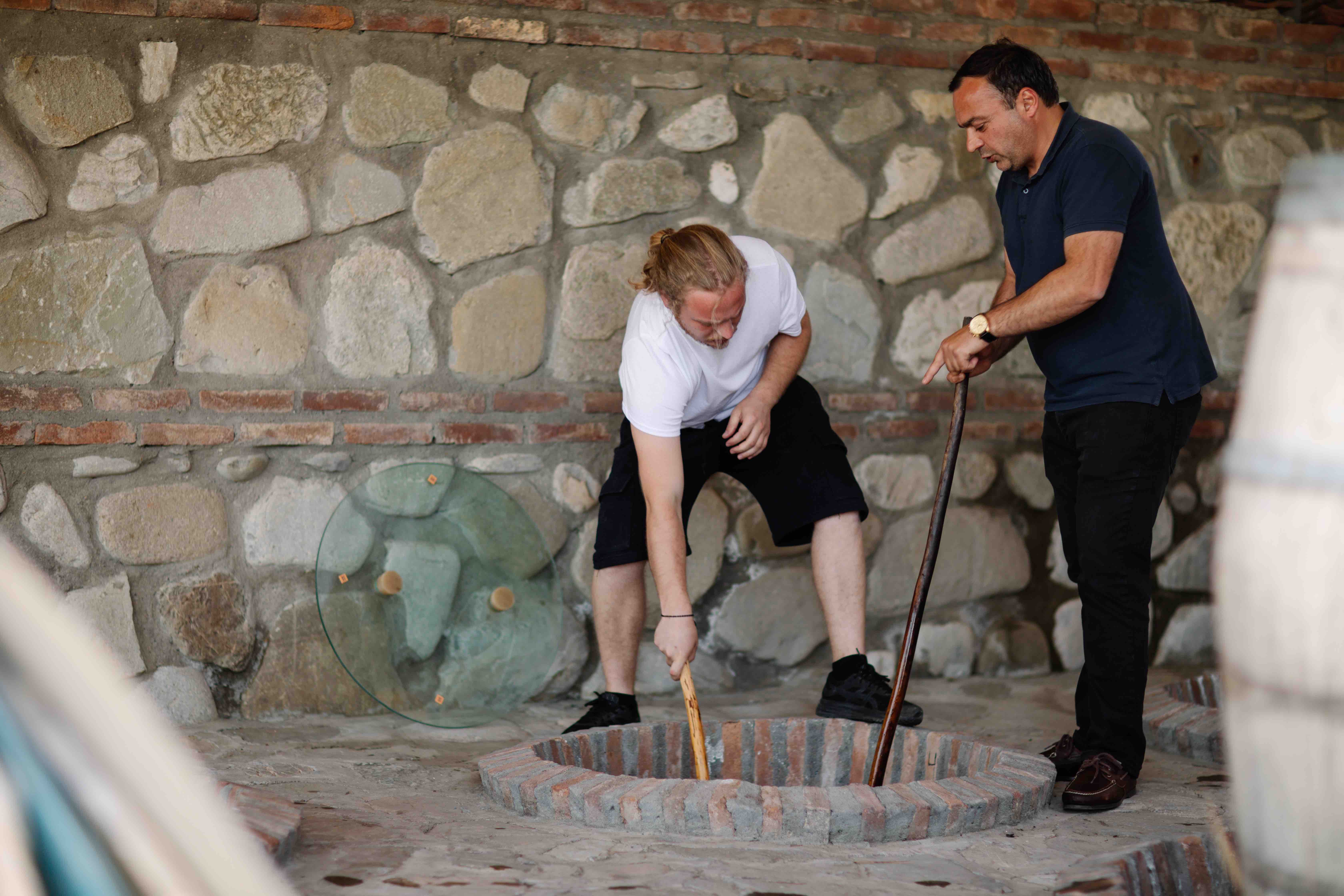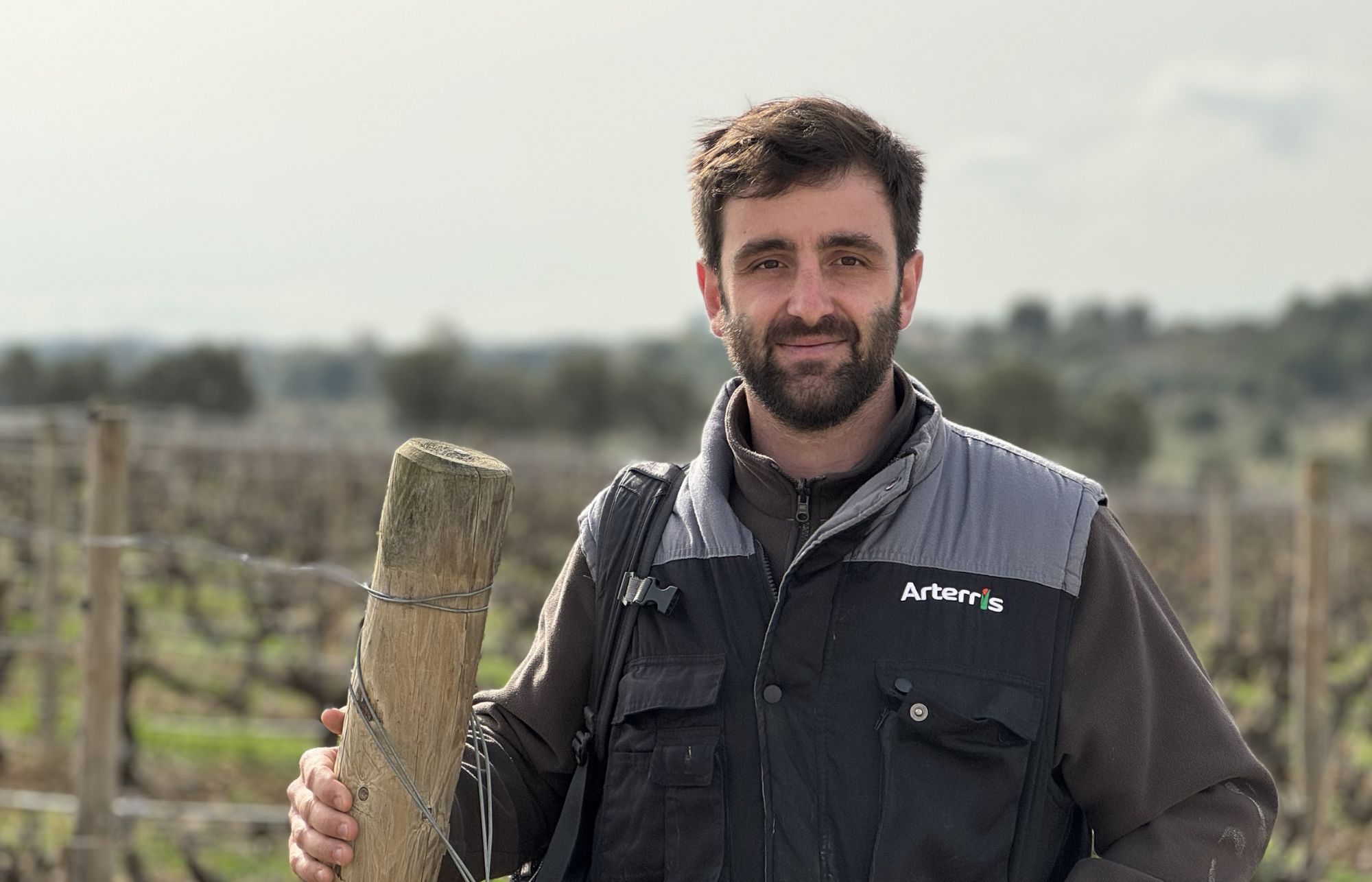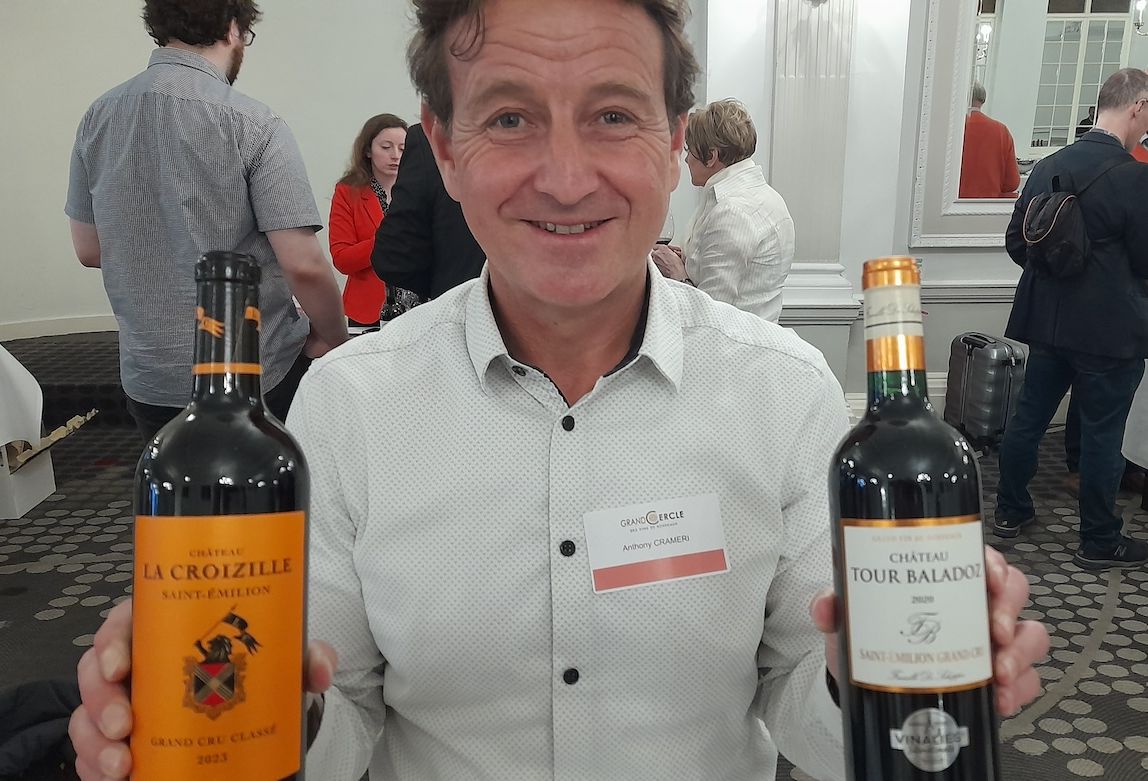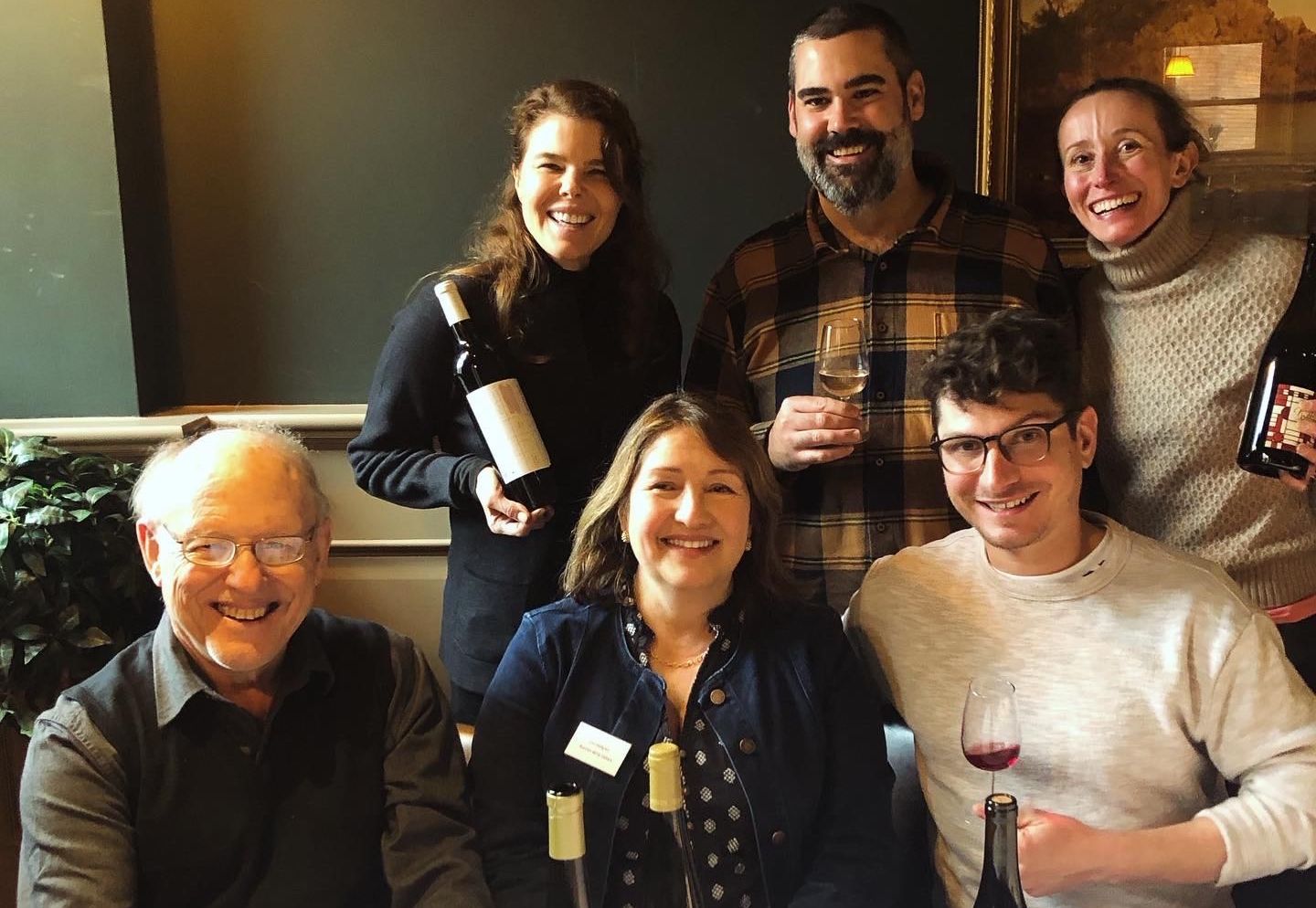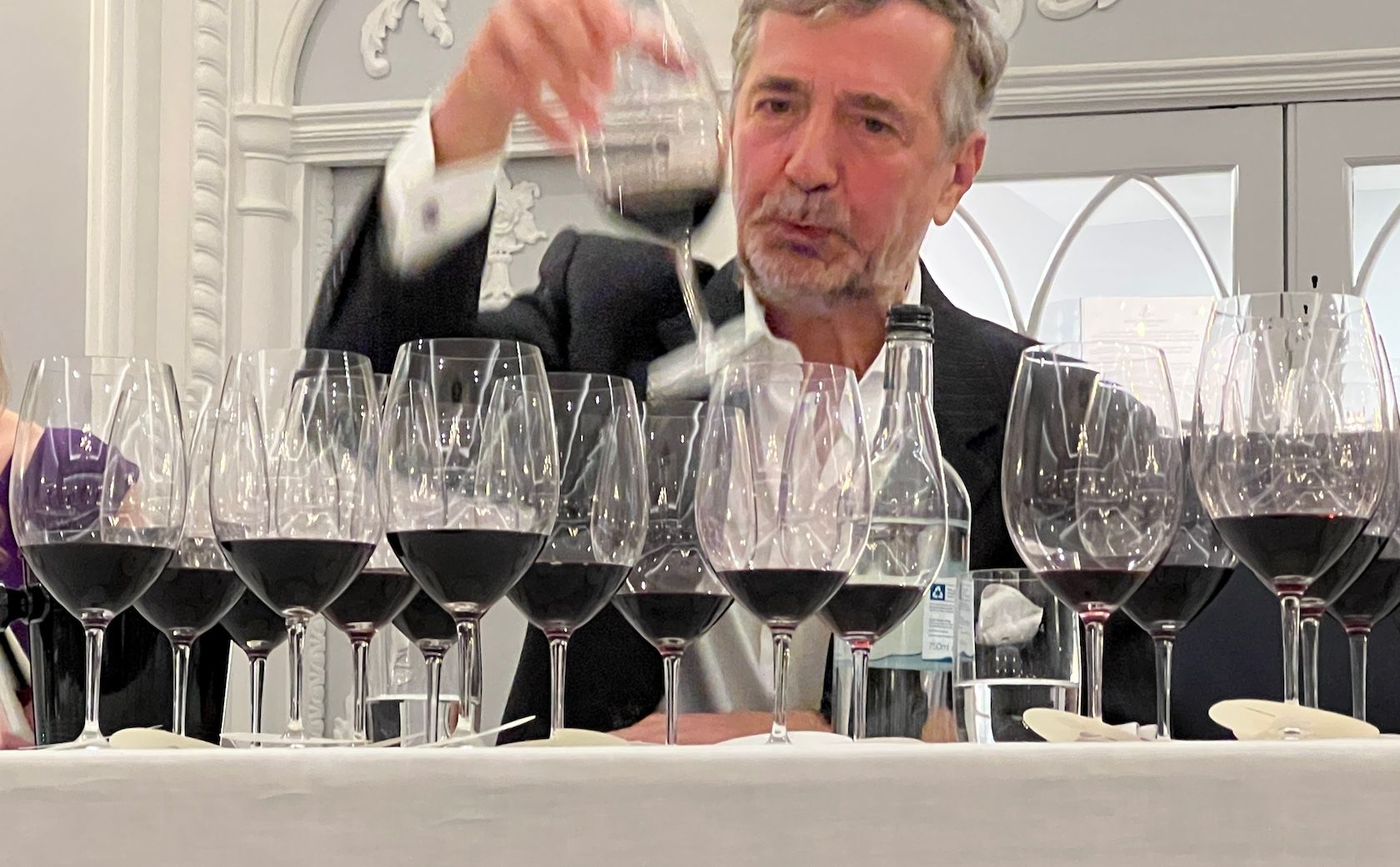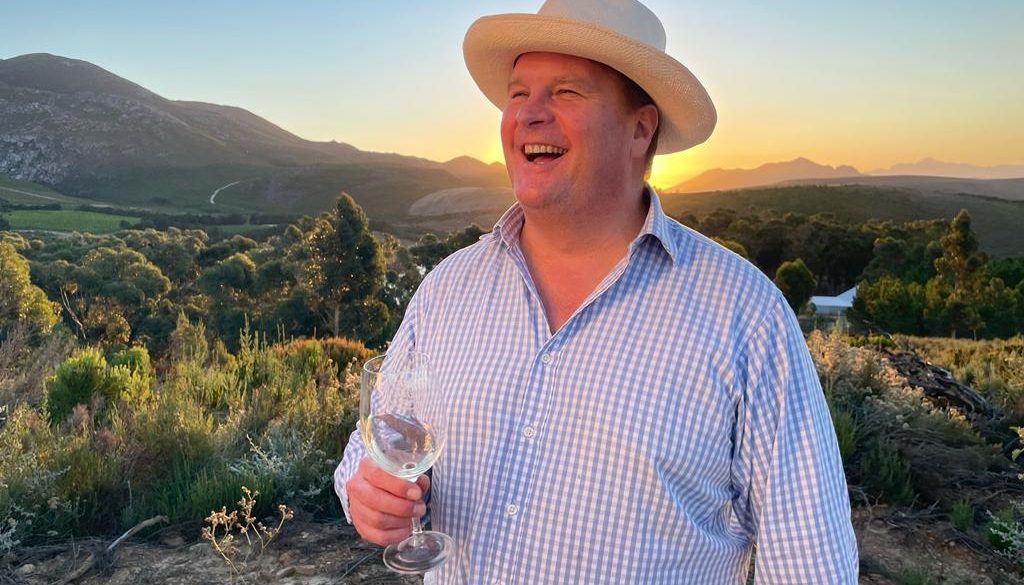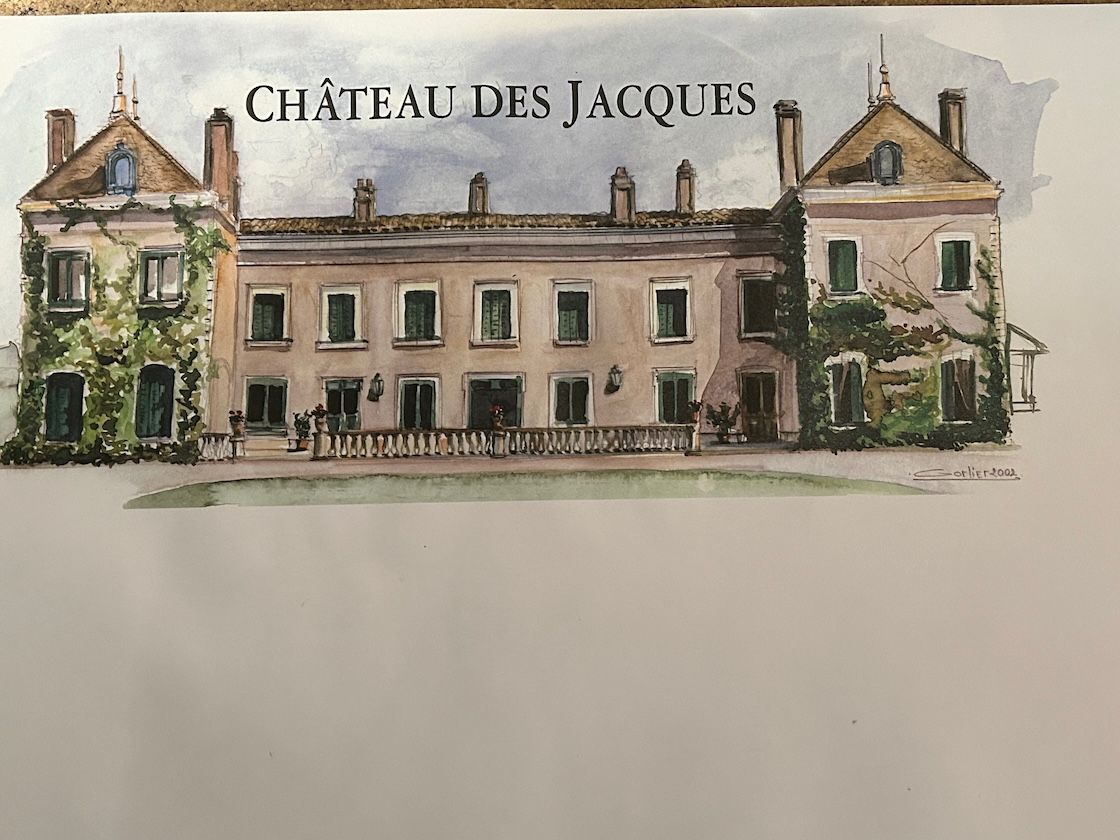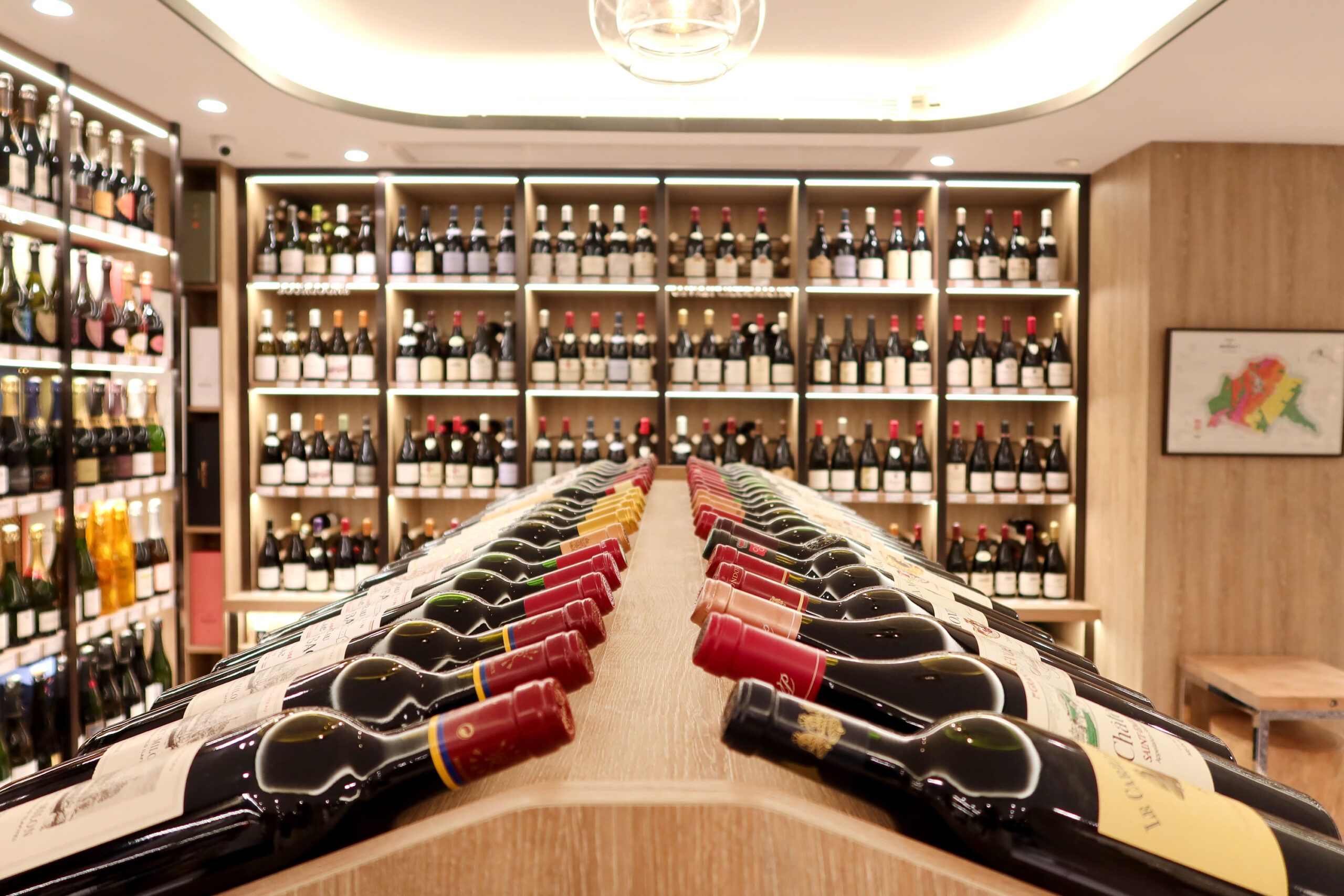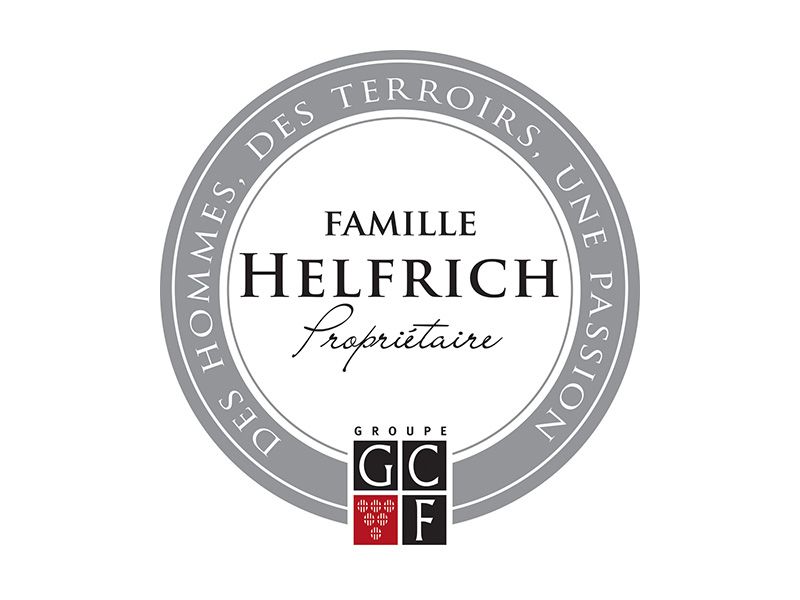We tried everything from the 2017 entry level wines through to the 100% Cinsault that is on most wine critic’s Best Wine lists, and much more besides.
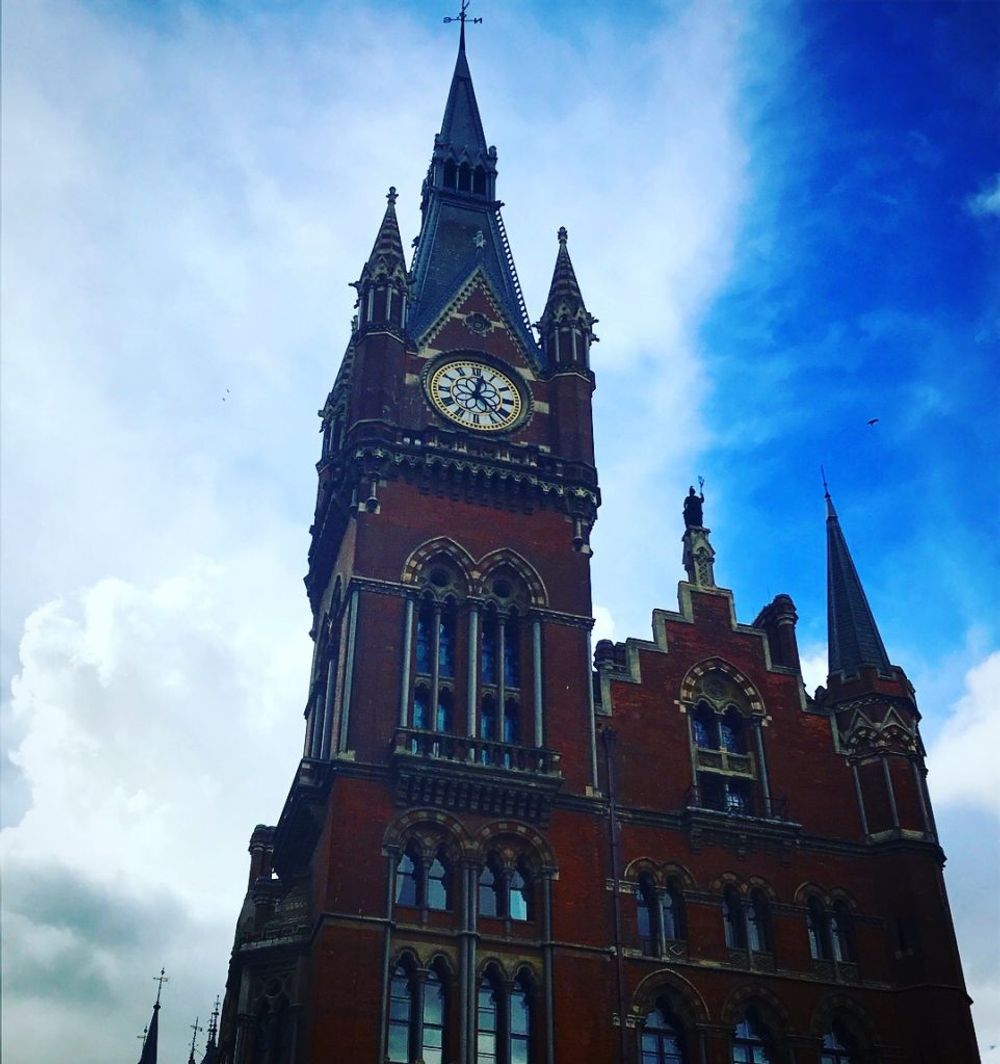
St Pancras Clock Tower, London. Under that large clock face is one of the coolest lunch venues ever.
It could be a Trivial Pursuit question. What links the Clock Tower of St Pancras London with the well-regarded Lebanese winery Domaine des Tourelles? Answer: they are both celebrating their 150th anniversary this year on account of being built in 1868.
“I was trying to find an interesting lunch venue to celebrate the 150th anniversary, Googled it and up came St Pancras,” says Madeleine Waters, brand ambassador for Tourelles and ex- bureau chief for Wines of Lebanon in the UK.
This is the reason 12 assorted writers find themselves sitting around a dining table in the Clock Tower, in a setting more akin to a Murder Mystery than a press luncheon.
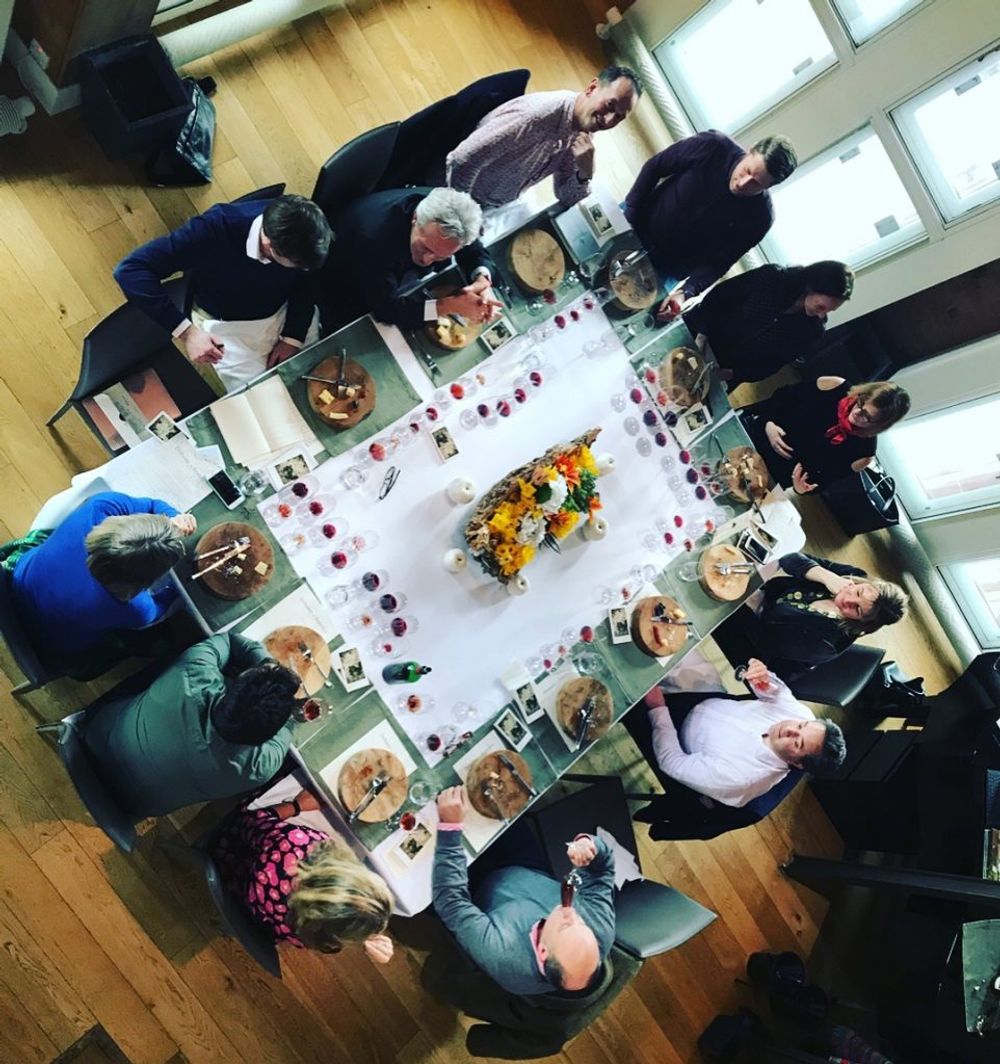
It was Colonel Mustard in the Clock Tower with the Arak Brun
It being a Friday, a 150th birthday bash and a lunch hosted by Faouzi Issa the effusive winemaker and co-owner of one of Lebanon’s oldest wineries Domaine des Tourelles, there is thankfully no spittoon in sight but instead a marvelous range of young and old vintages particularly of Faouzi’s pet varietal Cinsault. To get the complete lowdown how he uses Cinsault click this fascinating interview here.
To give you an idea of the treats in store at lunch, cheese is served with two Domaine des Tourelles Cinsaults – one from 1976 the other 1989.
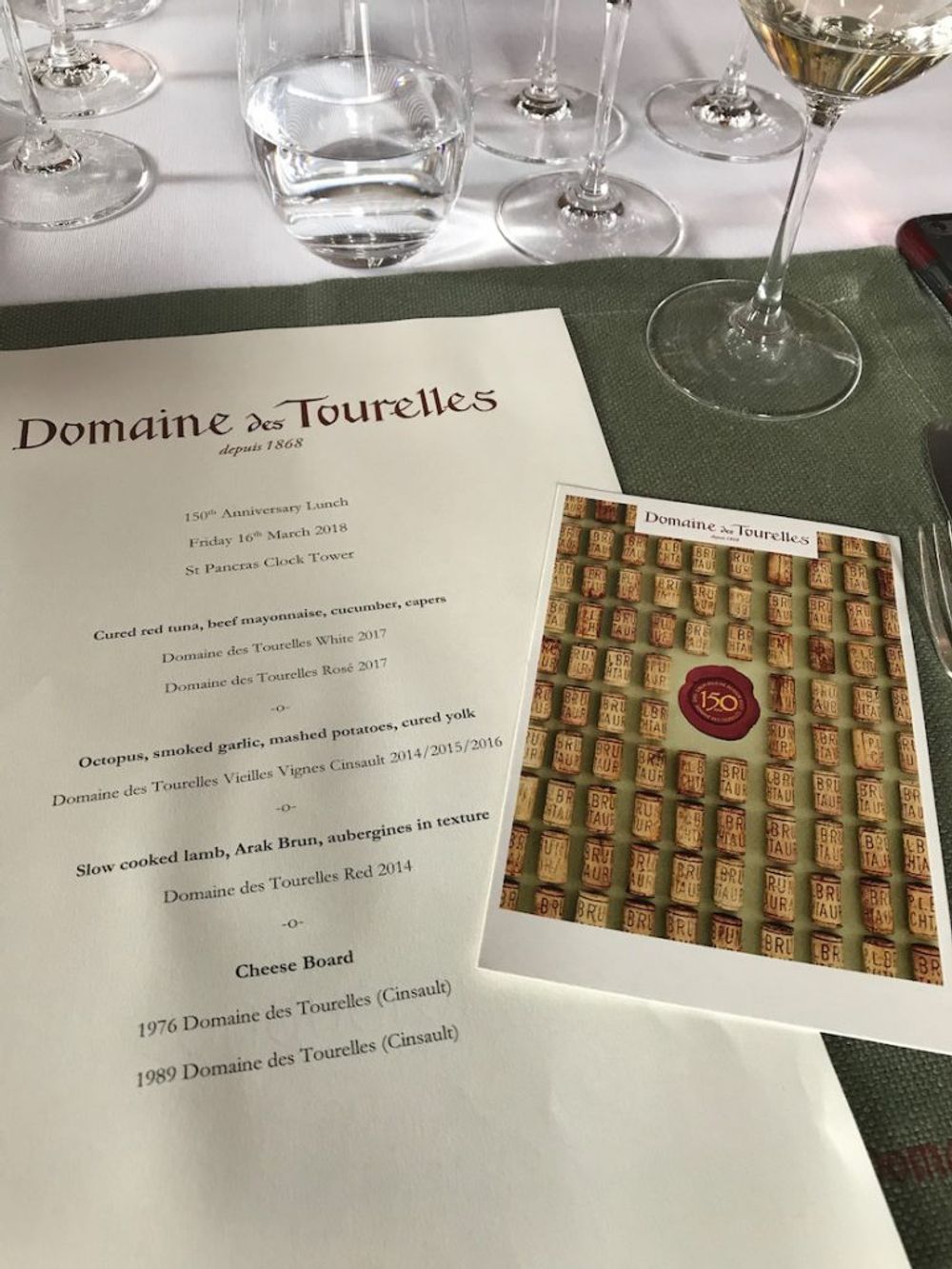
There is a lot of love in the room for Faouzi primarily because he is making extraordinarily good wines… in such extraordinarily difficult circumstances. He also has that can’t-knock-him-down ebullience that is very catchy, especially when it’s mixed with fine wine.
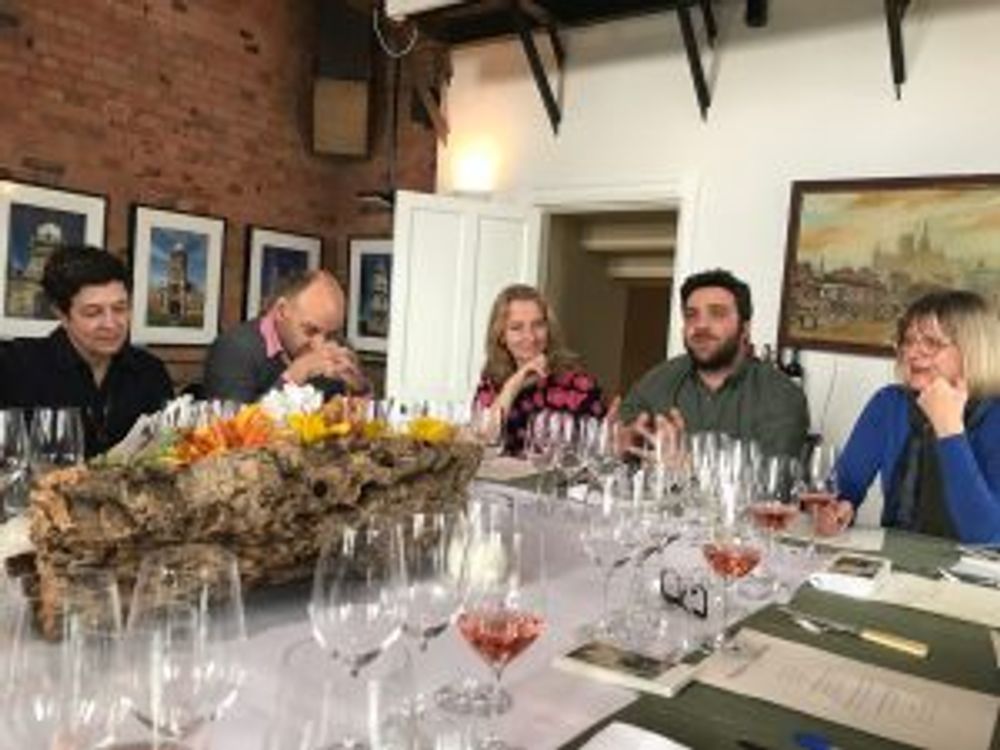
“The missiles are like music to us”
“I was stuck on the train from Scotland the other day for six hours because of the weather and everyone was scared saying ‘what do we do now?’ and ‘what are we going to do if we run out of water?’ Easy, I said, we open the door and eat the snow. If we run out of food so what?” he laughs. “In Lebanon if there is a problem, solving it comes easily.”
Making wine in Lebanon’s Bekaa Valley, the issues Faouzi has to deal with are less about mildew and rot but more to do with modern warfare.
“I am not afraid of the war – we are used to it. Sometimes we have had missiles whistle over our heads, but it is like music to us. It’s nice to be in a place that isn’t safe.”
More laughter.
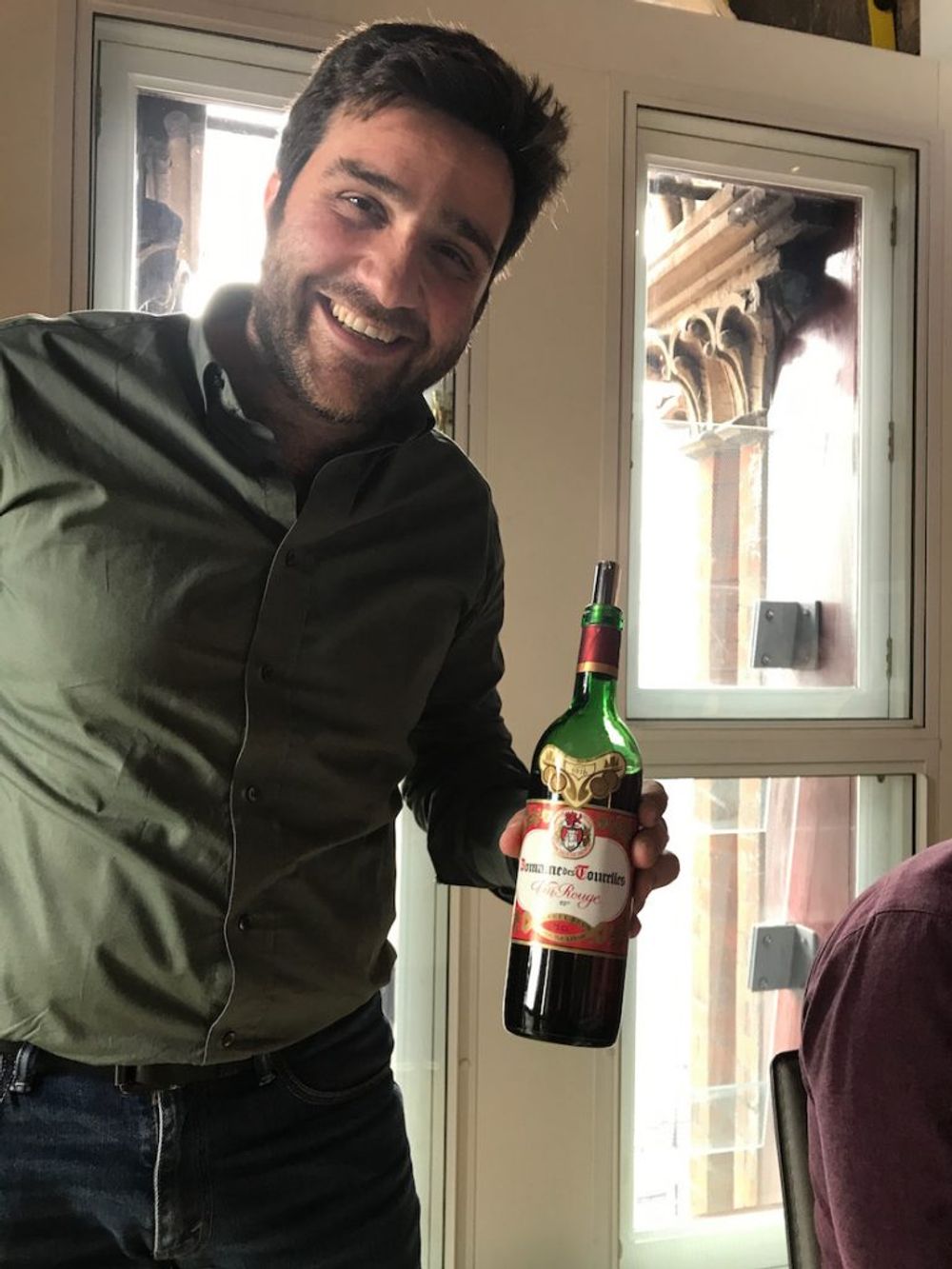
The host with the most: Faouzi Issa. It’s impossible not to love this guy.
The man tells yarn after yarn, hilariously telling the whole room stories which one national journalist had managed to prise out of him in an exclusive interview before we all rocked up.
Before she could object he was off telling them all to us.
The first was about his first experience in a winery, doing an internship with Northern Rhône legend Rene Rostaing.
“I found the winery, I was a little nervous and it was my first day. There was a man with no shoes on cleaning out the tanks who asked me what did I want? I told him and he replied that the owner would be here soon, so I sat and waited. Eventually the same man came up to me, shook my hand and said ‘Hello I am Rene Rostaing’.”
And so to the wines themselves
As winemaking fashions have turned full circle so wineries like Domaine des Tourelles have become more and more in vogue. What could be more of the moment than 100% old vine Cinsault, grown at altitude, vinified with minimal intervention in 150 year old cement tanks with natural yeast and filtered with dried thistles – thereby making it vegan-friendly?
“Why am I not certified organic? It’s Lebanon! We have been organic for 150 years – life is easy,” Faouzi beams.
Apart from Cinsault, Faouzi has an abiding love of Viognier and Syrah, no doubt helped by his time in the Rhône.
The Domaine des Tourelles White and Rosé we kick lunch off with are blends of 65% Viognier, 20% Chardonnay, 10% Obeidi and 5% Muscat d’Alexandrie for the White, and 40% Cinsault, 30% Syrah and 30% Tempranillo for the Rosé. Both wines are 2017 and pair excellently with cured tuna.
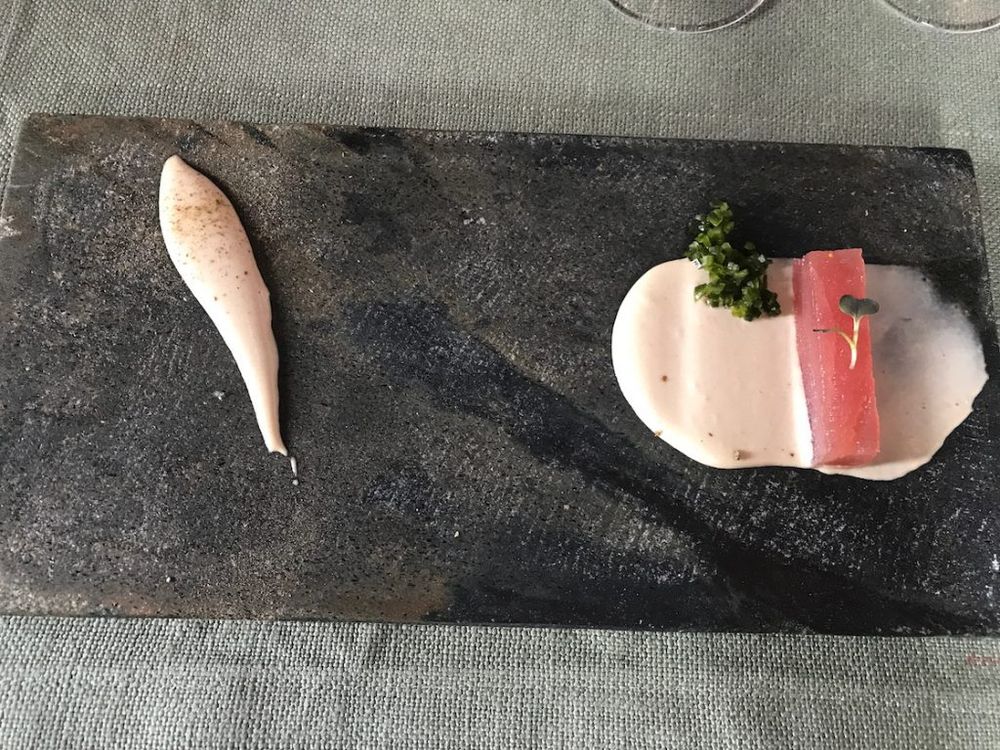
The White is very dry, lent a sweet edge from the Muscat and has interesting savoury notes of herbs, capers and nuts. The Rosé, Lebanon’s first since 1963 when it was introduced, is a real foodie wine – full-bodied, textured, nicely focused red fruit with a lick of cream at the end.
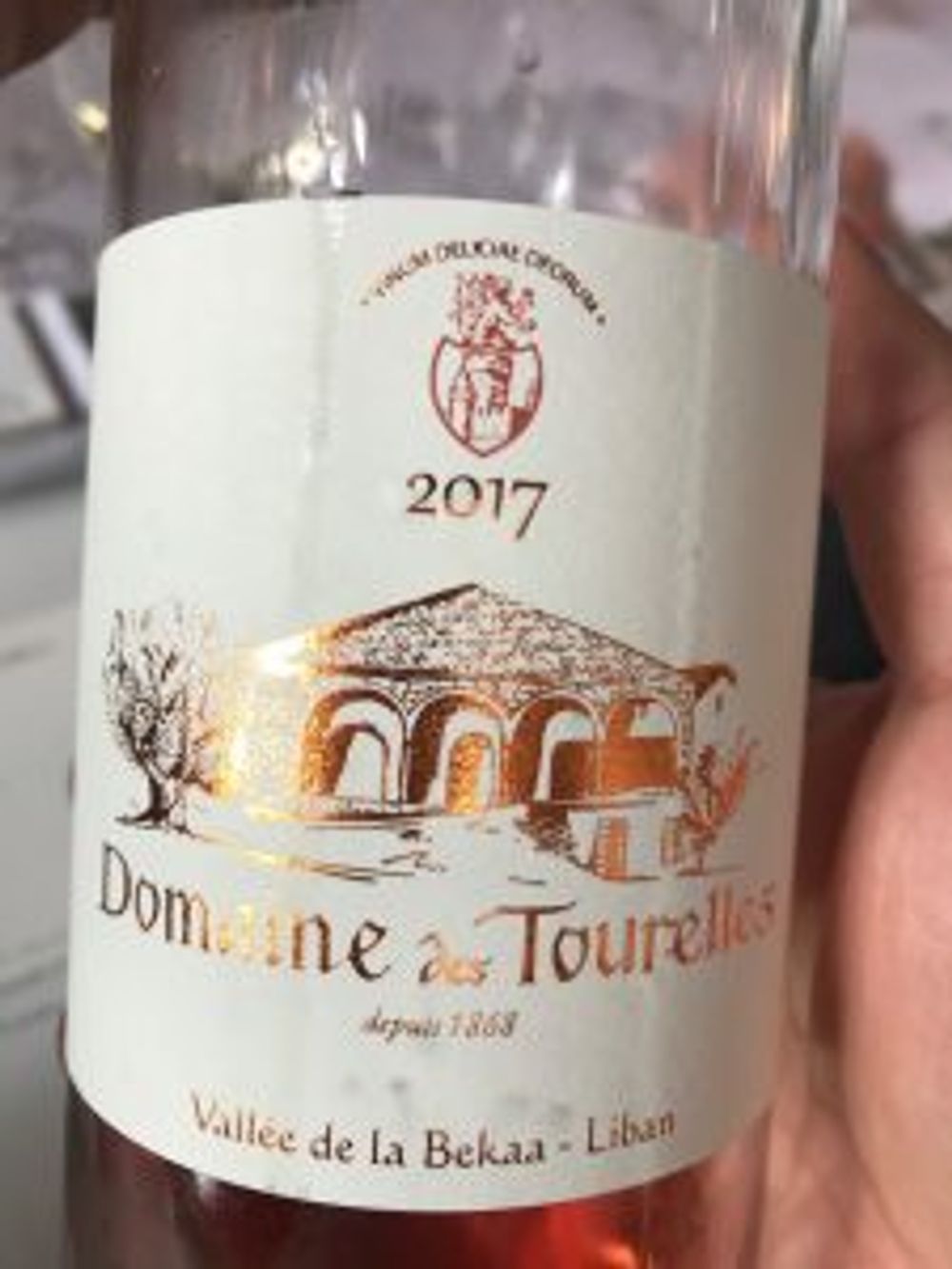
When you look at the low prices of these wines you can comprehend why so many of the world’s top critics have pointed to Lebanon as a relatively undiscovered jewel of winemaking. The entry level wines retail in the UK for under £10, the Vieilles Vignes which is in Margaret Rand’s newly-published book as one of the 101 Wines to Try Before You Die retails for the £17 mark. Given that it’s rubbing shoulders with the likes of Rousseau and Château Margaux, where Faouzi also did internship, it is not bad going.
“If people in Lebanon could see us drinking these wines in this way, with all of you top critics, they’d laugh,” Faouzi says “these are not expensive wines.”
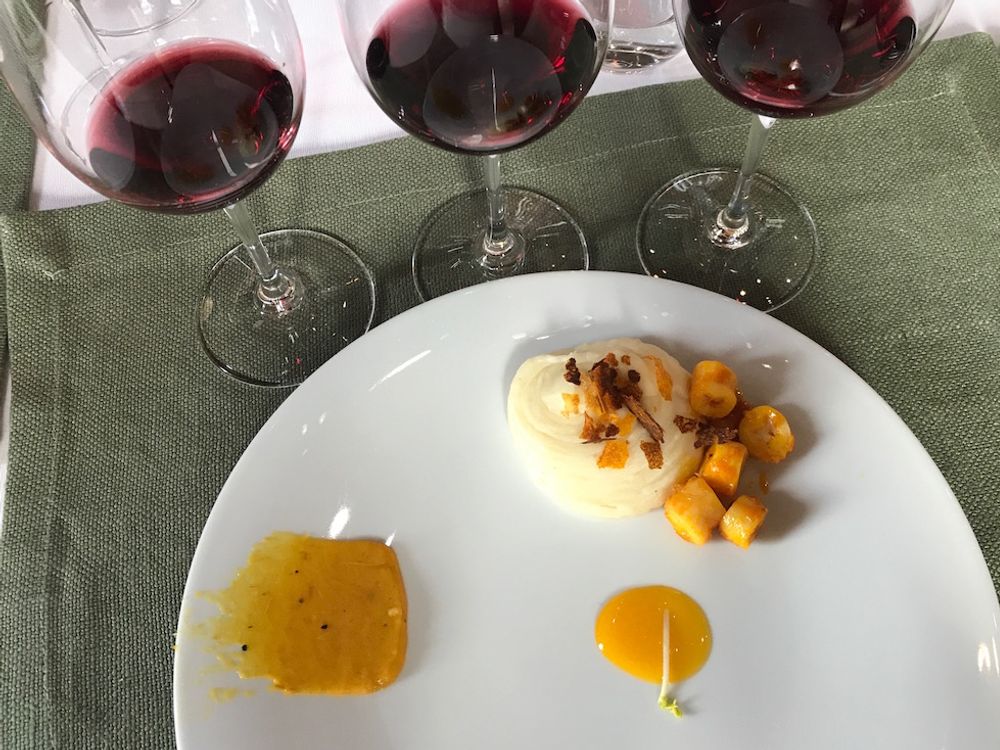
We then try three vintages of the Domaine des Tourelles Vieilles Vignes 2014, 2015 and 2016 with octopus, smoked garlic, mash and egg yolk. The wines are light to medium purple, sandy tannins coming from the concrete vinification, great texture and increasing complexity and layers of flavour as the wines age. There was a surprising degree of vintage variation but all were smooth, easy drinking and great with food. The 2014 showed the best, although slightly unfair on the ’16 which had only had three weeks in bottle.
The wines also age amazingly well as Faouzi proved by pouring a 1976 and 1989 with cheese. The ’76 was deep pink to light brown, with a slight whiff of oxidization (in a good way), the ’89 was light russet – both wines have a multitude of woody and nutty flavours and a backbone of acidity running through them.
Inbetween these two sets of wines we tried the ‘entry level’ Domaine des Tourelles Red 2014 which was served with the main course of lamb slow cooked in Arak Brun served with a very spicy aubergine side.
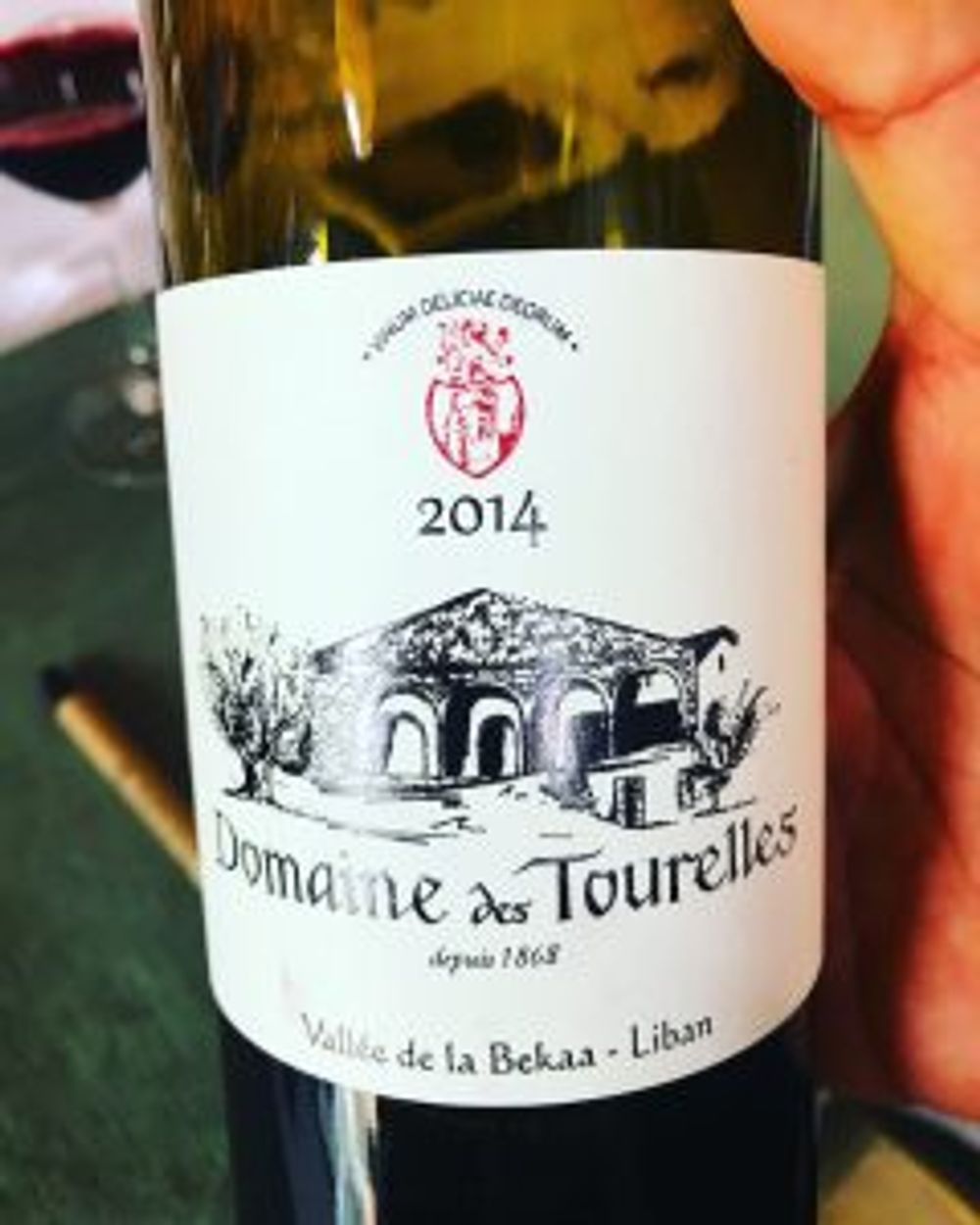
This wine was a revelation to me, and one of the best red wine/ spicy food pairings I’ve had. The wine used to be 100% Cinsault but is now 40% Syrah and Cabernet Sauvignon with 15% Cinsault and 5% Carignan. It was opaque, almost black had high acidity, great texture and a lot of tannin and accentuated the spice in the food. As soon as I got home I bought myself a case it was that good, for about £8 retail!
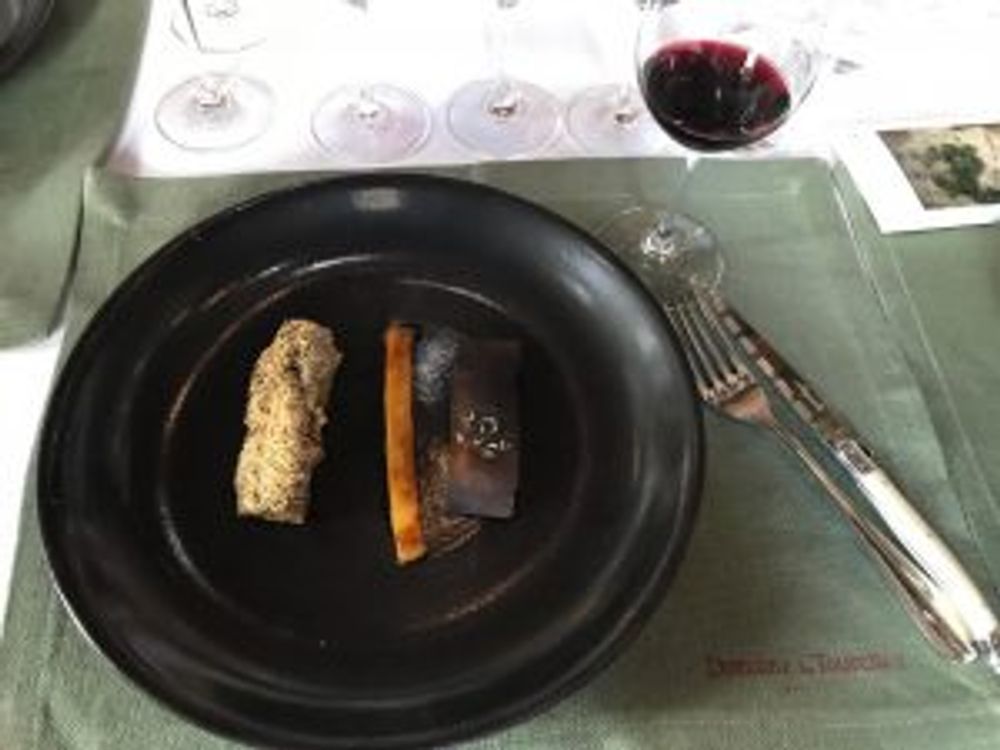
Things then got a wee bit messy.
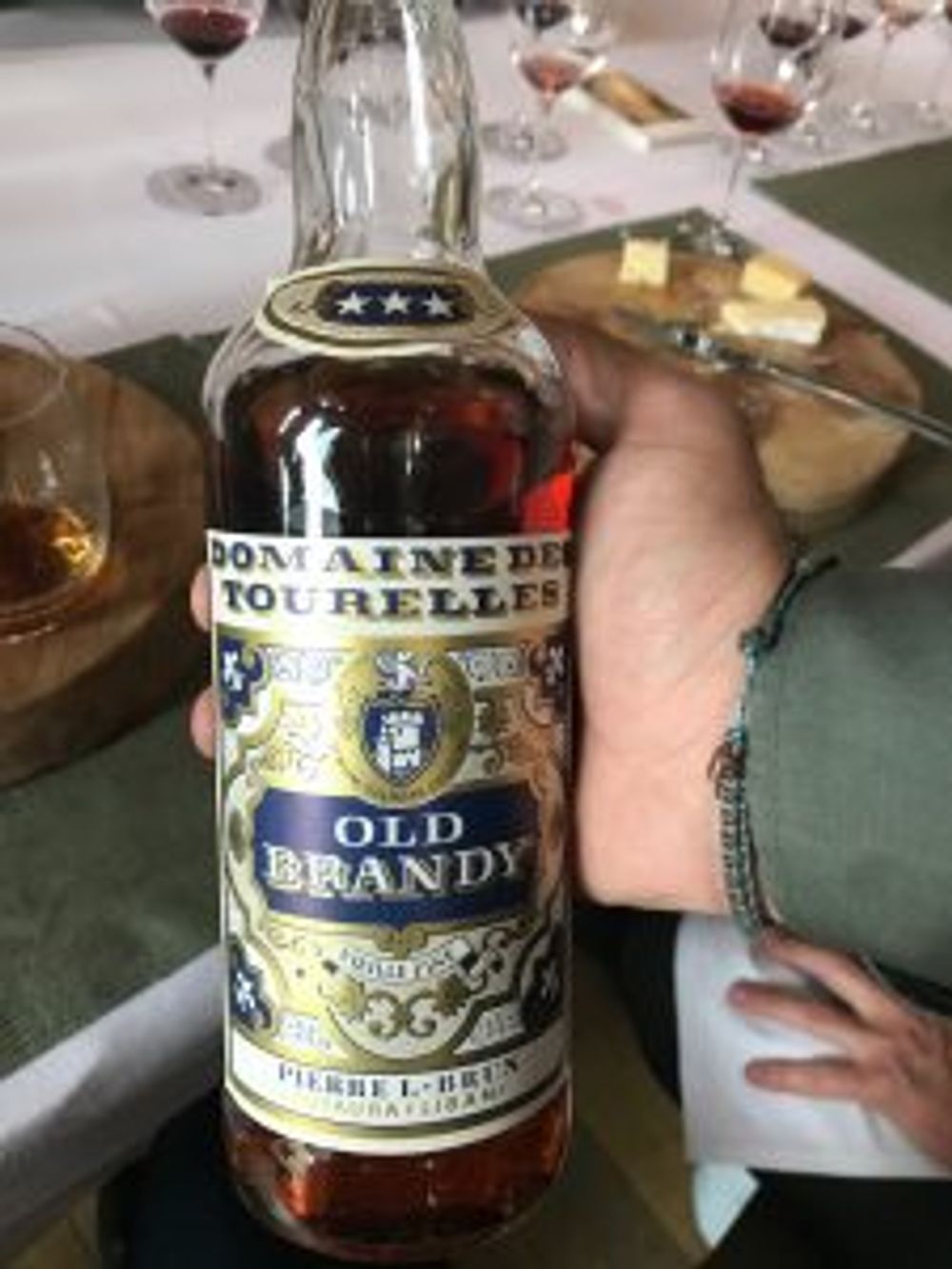
Oh oh…….
After a shot of his own brandy, Faouzi then goes on to explain how the drink of choice in Lebanon is Arak Brun, an aniseed spirit, drunk with ice. This he duly poured. With abandon.
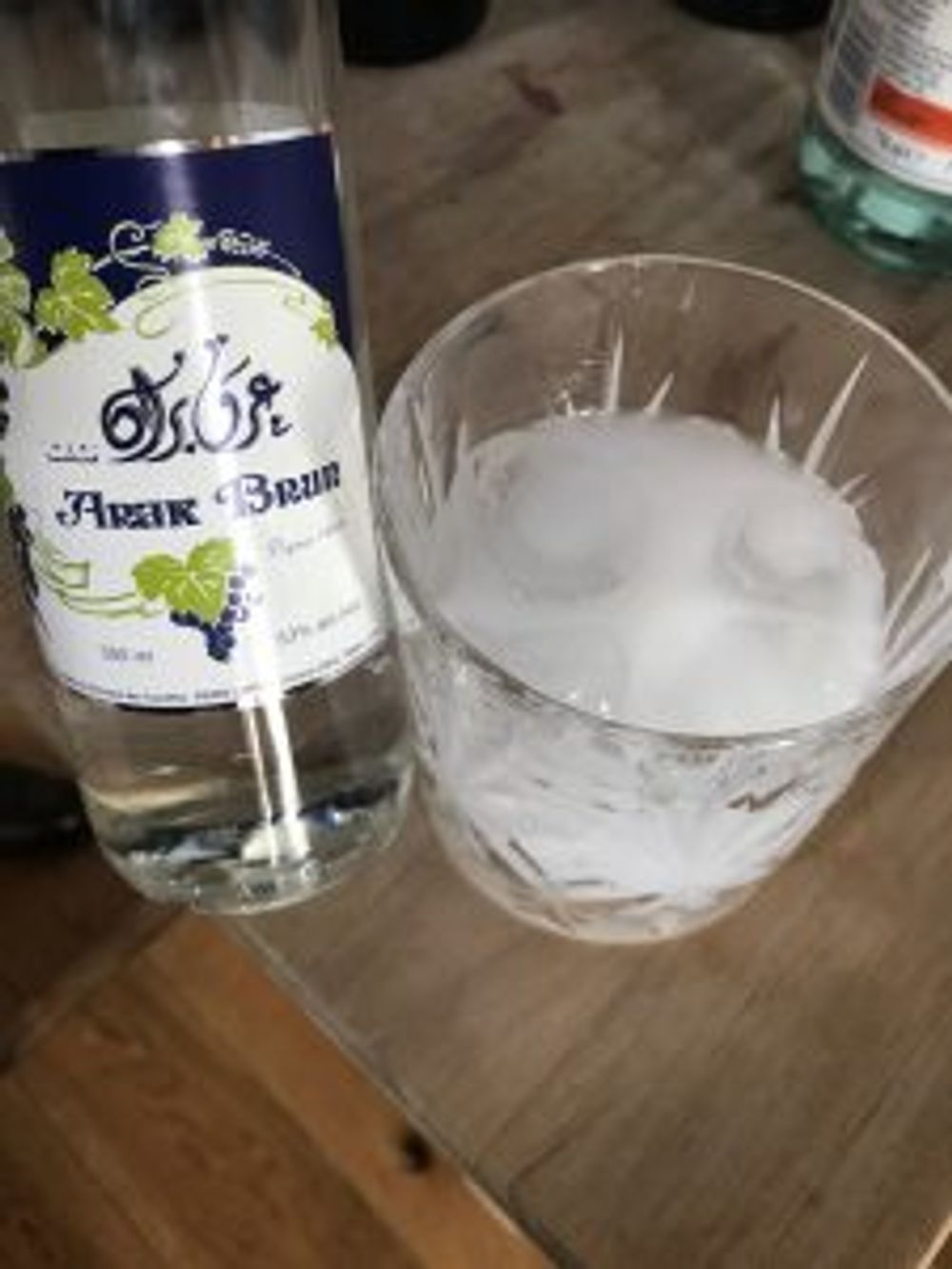
“Sorry Faouzi? How many units shall I put this down as on my Drink Less app?”
The aniseed used to be grown and imported from Syria, a source that has dried up in recent years, prompting Faouzi to plant his own aniseed fields, the first in Lebanon. The previous crop was cannabis
“You remember Red Leb from the 1970s? this is where it came from,” Faouzi says, before going on to point out in the souvenir picture book he gives out at lunch, the picture of a giant cannabis sativa plant emerging from the newly planted aniseed.
As we gazed at the assembled empty glasses I think we were all quietly thankful that he had decided to leave one product at home.
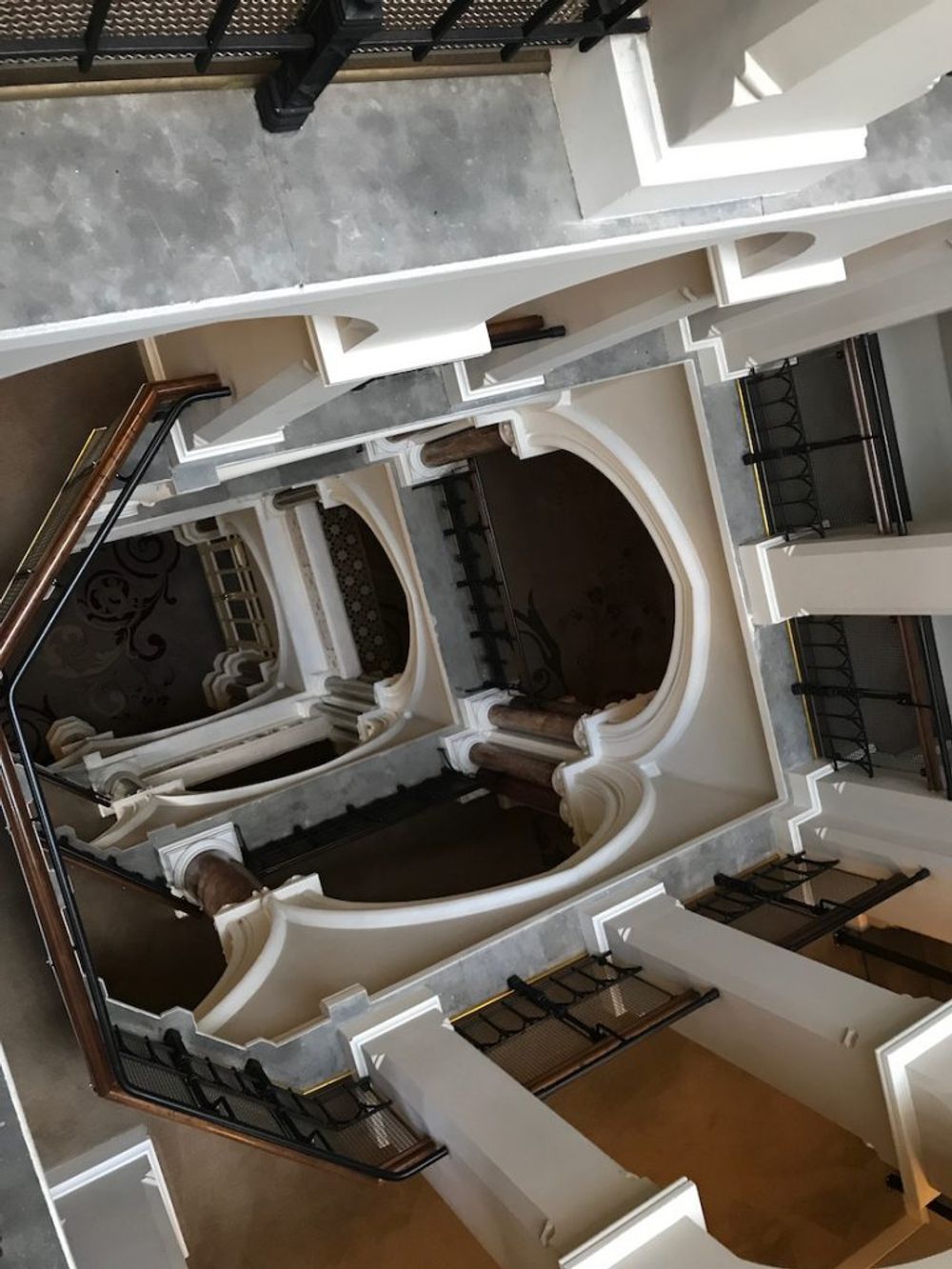
Negotiating the exit was a little harder than the entrance. Weirdly.
